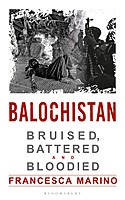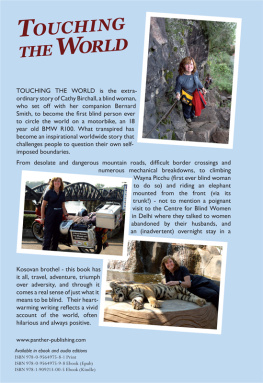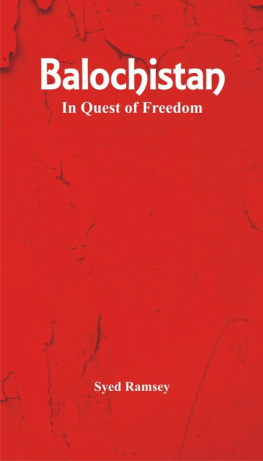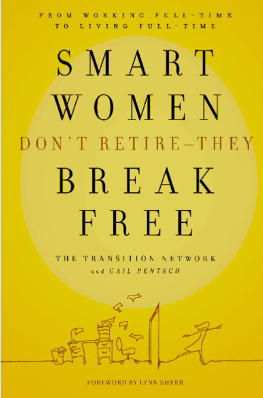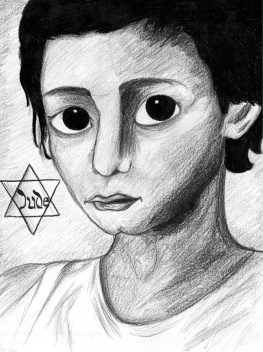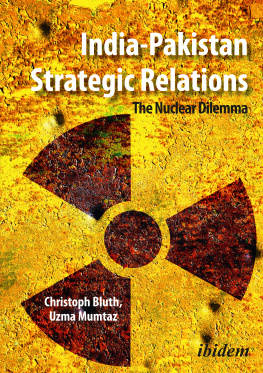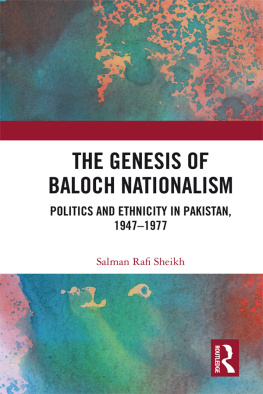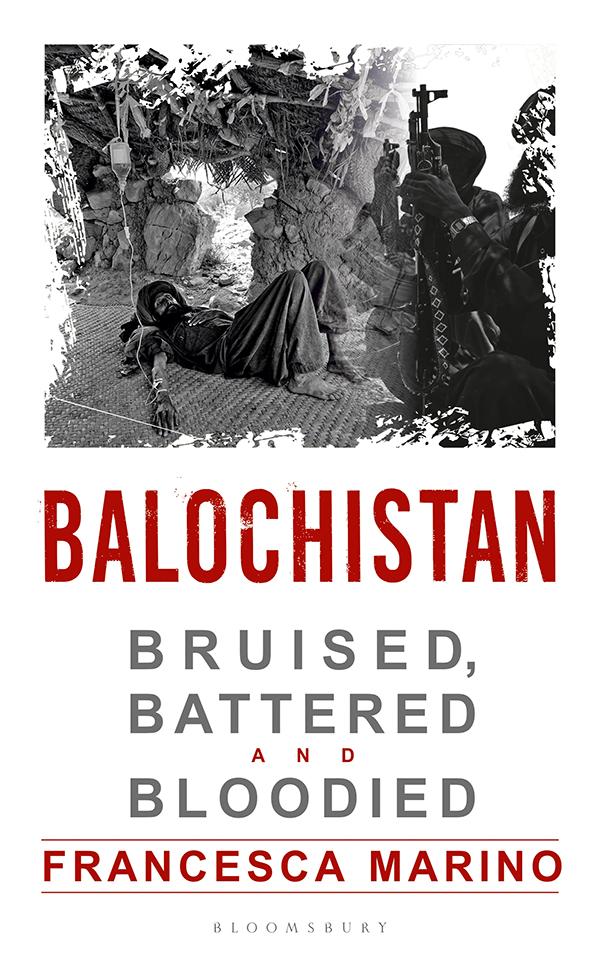
BALOCHISTAN
BALOCHISTAN
Bruised, Battered and Bloodied
Francesca Marino

BLOOMSBURY INDIA
Bloomsbury Publishing India Pvt. Ltd
Second Floor, LSC Building No. 4, DDA Complex, Pocket C 6 & 7,
Vasant Kunj New Delhi 110070
BLOOMSBURY, BLOOMSBURY INDIA and the Diana logo are trademarks of
Bloomsbury Publishing Plc
This edition published in 2020
Copyright Francesca Marino 2020
Francesca Marino has asserted her right under the Indian Copyright Act to be identified as the Author of this work
All rights reserved. No part of this publication may be reproduced or transmitted in any form or by any means, electronic or mechanical, including photocopying, recording or any information storage or retrieval system, without the prior permission in writing from the publishers
Bloomsbury Publishing Plc does not have any control over, or responsibility for, any third-party websites referred to or in this book. All internet addresses given in this book were correct at the time of going to press. The author and publisher regret any inconvenience caused if addresses have changed or sites have ceased to exist, but can accept no responsibility for any such changes
ISBN: PB: 978-9-3898-6763-3; eBook: 978-9-3898-6765-7
2 4 6 8 10 9 7 5 3 1
Created by Manipal Digital
Bloomsbury Publishing Plc makes every effort to ensure that the papers used in the manufacture of our books are natural, recyclable products made from wood grown in well-managed forests. Our manufacturing processes conform to the environmental regulations of the country of origin.
To find out more about our authors and books visit www.bloomsbury.com and sign up for our newsletters
To my father
Those who live in fear die every day, the fearless die just once.
Paolo Borsellino, the judge who was killed by the Mafia in 1992
CONTENTS
Foreword by Husain Haqqani
Introduction
HISTORY AND THE PAST
A bit of historical background
Forced annexation to Pakistan and Jinnahs betrayal
Revolts between 1940 and 1960
The London Group and the 1970s fight
Nuclear tests
Musharraf s time and the beginning of the present revolt
A return to arms
THE PRESENT
Of old and new militancy
Kill and dump and other atrocities
Missing persons and the Long March
Mass graves and torture
The ghost of liberty
A Bangladesh in fieri
Of women and womens rights
NEOCOLONIALISM AND THE NEW SILK ROAD
Tale of two countries: Sistan-Balochistan
The China-Pakistan economic corridor
Neocolonialism and neo-Dompas
Jihadis, strategic assets and ethnic cleasing
Free Balochistan campaigns and Chinas handMehran Marris case
Conclusion
Endnotes
About the Author
FOREWORD
Like the Kurds in the Middle East, the Baloch people aspire for autonomy and independence while their traditional homeland remains part of several countries. Currently, eight million Baloch live across the south-east of the Iranian Plateau, ruled by Iran, Pakistan and Afghanistan.
Their aspirations remain unrealised even though active Baloch insurgencies have existed for years in both Pakistan-controlled and Iran-controlled Balochistan. Pakistans Balochistan province comprises the largest segment of traditional Baloch territory and is also home to most of the Baloch people.
Successive governments in Pakistan have deployed force against the Baloch since the March 1948 annexation of the princely state of Kalat. Pakistan considers Balochistan as an integral part of its territory and claims that the Khan of Kalat voluntarily acceded his domain to Pakistan.
The Khans successors and other Baloch people dispute that. They point to Pakistans military action that forcibly included an otherwise semi-autonomous state into the newly created Islamic country of South Asia.
Globally, there is little appetite for changing colonial borders and the periodic Baloch insurgencies, since 1948, have failed to attract international attention for Baloch demands. On the other hand, the iron hand of Pakistans military has failed to vanquish the historically independent people to give up their aspiration for freedom.
The middle path of autonomy within a federal Pakistan has been discussed between Islamabad and Baloch leaders several times, usually to end a particular round of insurgency. But the Baloch feel that Pakistans leaders covet their regions natural resources too much to be willing to concede constitutionally guaranteed autonomy.
A few years ago, Pakistans then federal minister for Ports and Shipping, Mir Hasil Bizenjo, acknowledged that if a referendum were held in Balochistan today, the militants would win. However, he added that there would be no referendum, implying that the status quo would prevail through force. Bizenjo is himself a Baloch nationalist and reflects the disillusionment of those who are unwilling to fight against superior force but also know the frustration of the people.
The life of another Baloch leader, Nawab Akbar Bugti (19272006), reflects the troubled relationship between the militarised central government of Pakistan and the Baloch people living in Balochistan province. In 1948, Bugti had met Pakistans founder, Muhammad Ali Jinnah, and supported Balochistan joining Pakistan, based on promises of autonomy and inclusion.
Fifty-eight years later, in August 2006, Bugti was killed as a rebel and a traitor by the armed forces of Pakistan on direct orders of military ruler, General Pervez Musharraf. In between, Bugti served in Pakistans federal cabinet and as the Governor and the Chief Minister of Balochistan.
Pakistanis seldom reflect on how a man who embraced the idea of Pakistan soon after independence and served at the highest levels of government ended up being a rebel to the Pakistani state. Pakistan has still not learnt the lesson from the transformation of erstwhile East Pakistan into Bangladesh in 1971. There are limits to the role of military power in building a nation or keeping a country together.
Pakistans history is replete with mishandling of various ethnicities and nationalities. Pashtun leaders, such as Bacha Khan, Abdul Samad Achakzai and Khan Abdul Wali Khan, Bengali leaders, such as A.K. Fazlul Huq, Huseyn Shaheed Suhrawardy and Sheikh Mujibur Rahman, as well as Sindhi and Muhajir leaders were labelled as traitors when they disagreed with the overly centralised Pakistani state and advocated alternative policies than those embraced by Pakistans post-British establishment.
The Baloch and the East Pakistani Bengalis were among the first to disagree with the West Pakistani security establishment. After military resistance to inclusion in Pakistan failed, the Baloch have sporadically fought, since the 1970s, for independence or more autonomy within Pakistan. Their struggle has been brutally suppressed by the Pakistani state.
Although Balochistan is geographically the largest of Pakistans four provinces, but it is the least developed. Pakistan is urbanising quickly with 40 per cent urbanisation, but 75 per cent of Balochistans population remains rural. Pakistans overall literacy rate is 57 per cent (69 per cent for males and 45 per cent for females) but in Balochistan, it is 26.6 per cent (only 15 per cent for females).
While only 22 per cent of Pakistans population lives below the poverty line, half of Balochistans population lives below poverty line. Poverty levels in Balochistan are twice that of Pakistans Punjab region, which is home to most of the countrys power brokers, civil servants and military officers.
Next page
